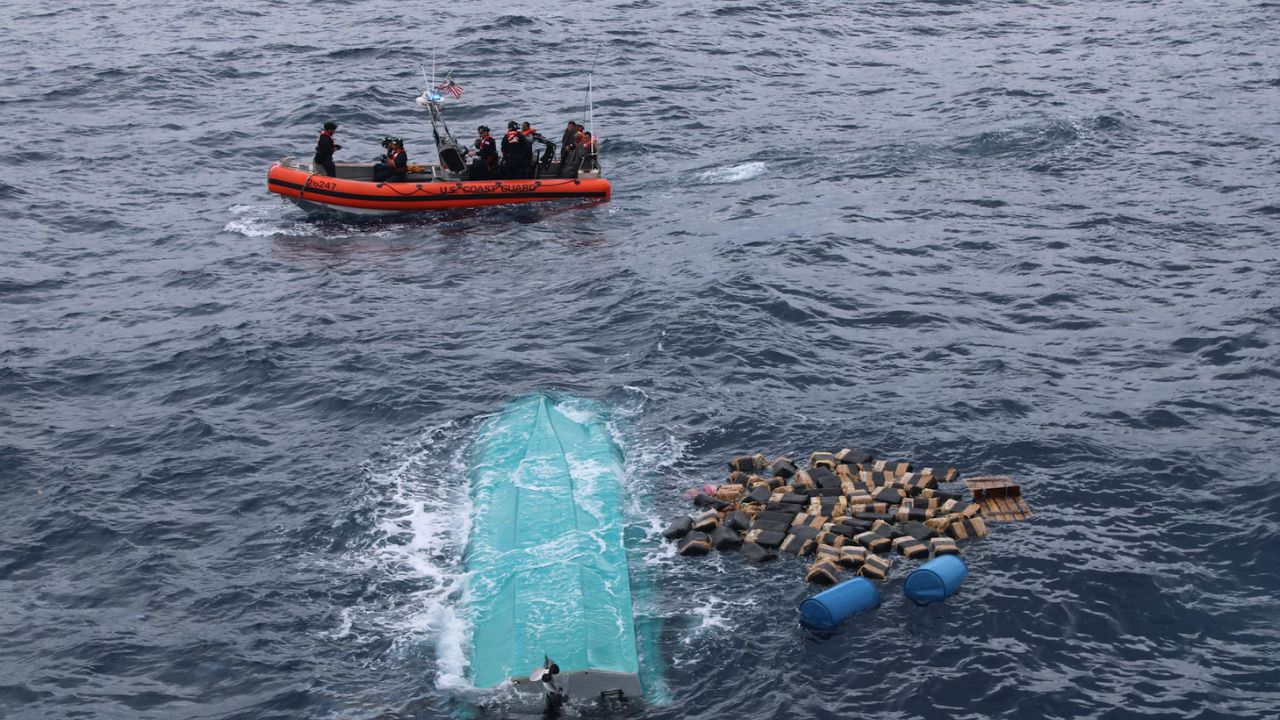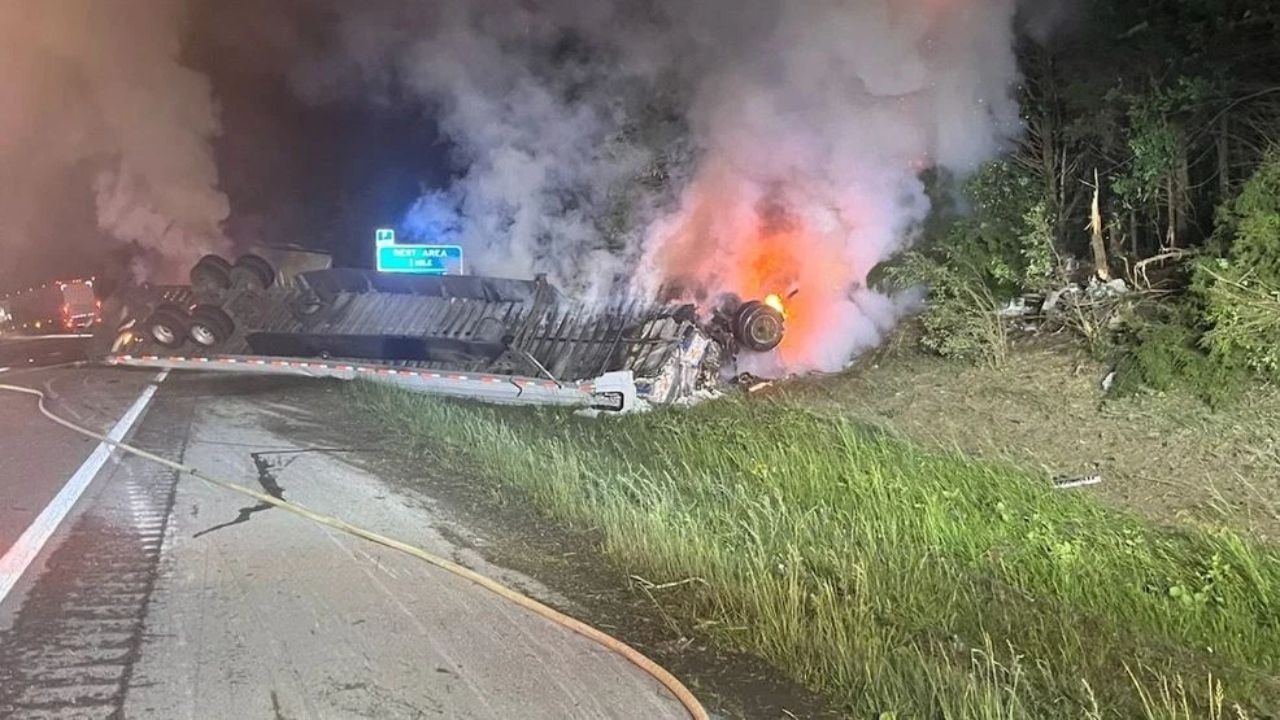San Diego, CA – The U.S. Coast Guard has announced a major victory in its ongoing fight against international drug trafficking after seizing 100,000 pounds of cocaine in the Eastern Pacific Ocean through Operation Pacific Viper, a months-long multinational effort targeting cartel smuggling routes. Officials say the operation has disrupted dozens of maritime networks and delivered one of the largest drug interdictions in U.S. history.
The Incident: Record Cocaine Seizure on the High Seas
According to the Department of Homeland Security (DHS), Operation Pacific Viper was launched to target transnational criminal organizations operating in the Eastern Pacific corridor. The surge operation has averaged 1,600 pounds of cocaine interdicted daily, totaling 34 major drug seizures since its inception.
In a statement released on October 14, DHS officials confirmed that U.S. Coast Guard (USCG) vessels have collectively seized 100,000 pounds of cocaine, preventing the drugs from reaching American shores.
“Operation Pacific Viper has proven to be a crucial weapon in the fight against foreign drug traffickers and cartels in Latin America,” said Homeland Security Secretary Kristi Noem. “By cutting off the flow of these deadly drugs, the Coast Guard is saving countless American lives and delivering on President Trump’s promise to Make America Safe Again.”
The Coast Guard described the operation as a “surge deployment” of maritime assets, focusing on intercepting cartel vessels before they could reach Central American or U.S. coastal waters.
Investigation and Evidence: The Largest Offload in Coast Guard History
In August 2025, Operation Pacific Viper achieved a historic milestone when the USCGC Hamilton offloaded more than 76,000 pounds of illegal drugs—including 61,740 pounds of cocaine and 14,400 pounds of marijuana—at Port Everglades, Florida. The seizure had an estimated street value of $473 million, marking one of the largest narcotics offloads in Coast Guard history.
Images released by the Coast Guard show crew members offloading bundles of seized cocaine at U.S. ports following months of interdictions in international waters. Officials said the successful missions were coordinated with partner nations and supported by intelligence-sharing networks to track cartel movements across the Pacific.
Expert Analysis: Cartels Operating as Global Enterprises
To understand the broader implications of Operation Pacific Viper, Fox News Digital spoke with Spencer Coursen, a threat management specialist, former U.S. Army Ranger, and Special Deputy U.S. Marshal.
Coursen explained that the cocaine seized by the Coast Guard primarily originates from Colombia’s Pacific coast, moving north through Ecuador, Peru, and Venezuela, before being trafficked by sea toward Mexico and the U.S.
“They’re not street gangs,” Coursen said. “They’re global logistics enterprises that rival Amazon—vertically integrated from jungle production to port distribution. They have infrastructure, surveillance, and billions in cash and weapons to protect their routes.”
Coursen emphasized that the Pacific corridor has become increasingly attractive for traffickers as traditional routes through the Caribbean and Central America face tighter enforcement.
The Scale of the Cocaine Trade
Despite the Coast Guard’s success, Coursen warned that the operation highlights the massive scale of the global cocaine trade.
“Every win is great,” he said. “But every win is also an insight into just how much cocaine is being moved. The most recent estimates show 3,000 to 4,000 tons a year—about 6 million pounds. Even massive interdictions like this are only scratching the surface.”
He added that the U.S. remains the largest consumer of cocaine, responsible for an estimated 40% of global demand, making it a primary market for international cartels.
Coursen explained that cartels have so much capital that losing shipments is simply part of their cost model.
“If nine out of ten shipments are seized, they’re still making a profit,” he said. “Each one is insured by scale. To them, it’s a tariff—just the cost of doing business.”
National Security Implications
Officials from the Department of Homeland Security and U.S. Coast Guard say that operations like Pacific Viper are critical to both national security and public safety. Beyond seizing narcotics, these missions target the logistics and financing arms of international crime networks.
The Coast Guard noted that each successful interdiction represents not only a significant financial loss to cartels but also the prevention of hundreds of thousands of potential overdoses in the United States.
“In cutting off the flow of these deadly drugs, the Coast Guard is saving countless American lives,” Secretary Noem reiterated. “These missions reaffirm America’s maritime strength and commitment to security.”
Ongoing Developments and Future Operations
The Coast Guard confirmed that Operation Pacific Viper remains ongoing, with continued international cooperation among nations along the Pacific corridor. Maritime analysts say future missions will integrate AI-driven surveillance, drone reconnaissance, and real-time intelligence sharing to further disrupt smuggling routes.
Coursen cautioned, however, that interdiction alone cannot eliminate the threat.
“It’s an enormous challenge,” he said. “But every interdiction is a win for national security, and for the men and women who put themselves in harm’s way to make it happen.”
The Coast Guard said additional details on upcoming phases of the operation will be released later this year.
Conclusion
The success of Operation Pacific Viper underscores the ongoing fight against global drug trafficking and the critical role of the U.S. Coast Guard in securing America’s maritime borders. While the mission’s achievements have disrupted cartel operations, experts warn that the battle is far from over as traffickers adapt and evolve.
What are your thoughts on the Coast Guard’s Operation Pacific Viper? Share your opinions in the comments below.




